SACBC: Millions Enslaved in World Today
Mass Celebrated for Mass for St. Bakhita Day
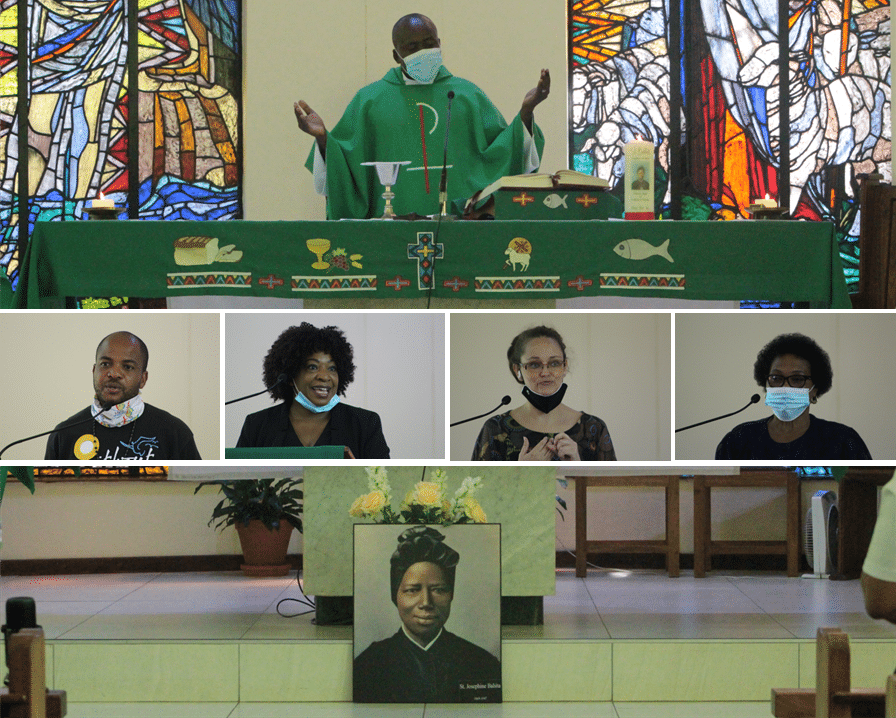
There are millions enslaved in the world today and only 1 percent of victims are ever rescued, according to International Labour Organisation. The Counter-Trafficking In Persons (CTIP) of the SACBC celebrated the Mass for St. Bakhita Day on 8 February 2022 at St. Augustine parish in Silverton in the Archdiocese of Pretoria. This day is one of the days used by CTIP to raise awareness about human trafficking.
Fr. Robert Ndung’u who celebrated the Mass. In his homily referring to Ezekiel chapter 34 where God says, “Behold, I, myself will search for my sheep”, said the victims of human trafficking are scattered all over because they are looking for pasture and justice. He noted that some are looking for employment, running away from poverty, war, and violence. He exhorted, “We who are gathered here today need to take the I of the Lord and make it ours, instead of saying this what the Lord saying maybe we should I Fr. Robert I am going to seek them, I am going to strengthen them, I am going to fight for them. I am going to bring them back home.” He advised the people present to take this responsibility so that this does not become just something theoretical, saying the word must take flesh. “I must become that ‘I’ the Lord is talking about to be able to help my brothers and sisters who are victims of Human Trafficking. It might not seem possible because we are few, but by the Spirit of the Lord upon us,” added Fr. Ndung’u. He reminded that those fighting human trafficking are not just fighting flesh and blood as St. Paul says, but are fighting principalities, are fighting people who don’t care, who will kill. “The Spirit of the Lord that was upon Jesus is the same spirit we need to invoke upon ourselves that the Lord may keep us safe so that we may become that I which will bring liberation to the victims of human trafficking,” said Fr Ndung’u.
After mass, a few of those who were present and also involved in this fight against human trafficking gave some short speeches. Jacqueline Fourie form Small Voice Human Trafficking said the biggest obstacle that they as an organization face today is ignorance because people deny that human traffic exists. She said when we talk to many about human trafficking many say it does not happen in South Africa and it is going to happen to our children.
Fourie asserted that they work with human trafficking every day and it is happening in South Africa. “It’s happening in areas where we live, it’s not just in other countries, it’s here. It’s in our community, our neighborhood, our schools.” She noted that some school children are trafficked by their parents, brothers, and sisters. She noted that people need to understand what human trafficking is, “Trafficking is not just being taken from one country to another country and then become a slave. Trafficking is when someone owns someone else’s life and exploits it. By exploiting that life of someone that trafficker gets something in return, he gains something in return, whether it’s money or wife (because some people are being forced to marry. And that is seen as human trafficking because that is one of her or his choice. He or her life is taken away and they become someone else’s property. She also highlighted the danger of social media which is used to recruit and exploit young people.”
Fourie warned that human trafficking can happen in people’s homes. She continued to warn that traffickers are not just an unknown scary man you see on the street, it can be someone known, even family members and kids recruiting other kids. Even though some are more susceptible to becoming victims like those looking for jobs or feeling lonely we can all become victims. “Human trafficking is the fastest growing crime, the second biggest after drugs,” said Fourie, wondering why there are still people denying that it exists, noting also that some people are victims and don’t even know they are victims.
Octavia Ephraim, Octavia Freedom Challenge Journey, former Miss United Nations South Africa, when her sister was missing for almost four years got involved with Train the Trainer program which was run by CTIP through Sr Melanie O’Connor. “Let’s not underestimate the power of raising awareness, through prayers, conference, and social media has made it so easy for us to spread our wings”. She said connecting with Sr. Melanie has helped her connect with other champions in the field. She added that she would like to honour the church for the work that it does, that the voice of the Church is always needed in fighting the evil in society. “I must honor the Catholic Church for making this a priority and the making available the train the trainer program, because the more we empower others to do what we do our voices become louder,” said Ephriam.
Sello Mashaba from Without Chains said one of the most important safety tips in society is that whenever and wherever people go they must make sure someone knows where they are going, especially with regard to job interviews. He said a lot of people disappear going for job interviews. Noting that social media is the biggest recruiter for human trafficking he advised that parents need to know how to manage their children’s social media pages so that they can know who they are talking to and help them to be safe. He also warned that sport and modeling agencies are also very big on human trafficking. “A lot of young girls are disappearing because of this attractive career exposure,” said Mashaba.
Walk For Freedom says South Africa is a source, transit, and the destination country of human trafficking and 53.76/100 is the vulnerability rate to modern slavery in South Africa. 4 in 1000 people are enslaved on the continent of Africa. Forced marriage and forced labor are the most prevalent forms of modern slavery in Africa.
Related
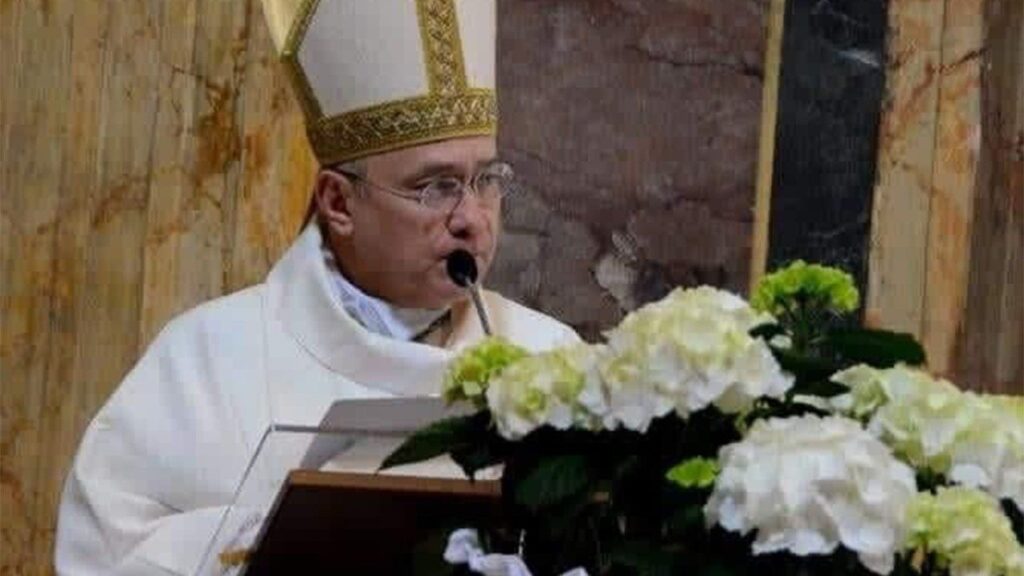
“Let us pray to the Virgin to protect the Church, the Pope, this nation and the entire world”
Exaudi Staff
15 July, 2024
5 min
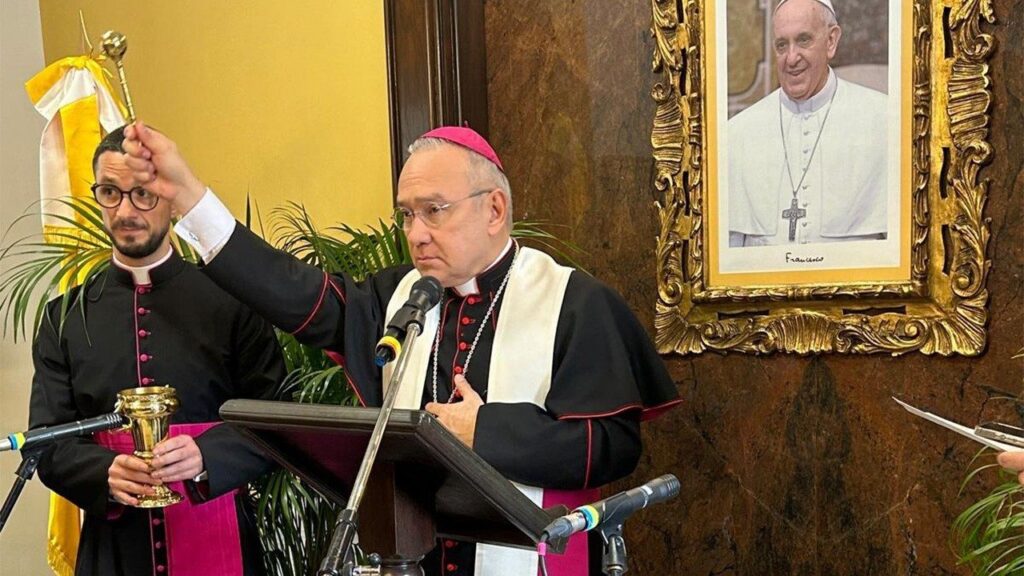
Spiritual closeness of Pope Francis on the occasion of the reopening of the Pontifical Representation in Honduras
Exaudi Staff
14 July, 2024
4 min
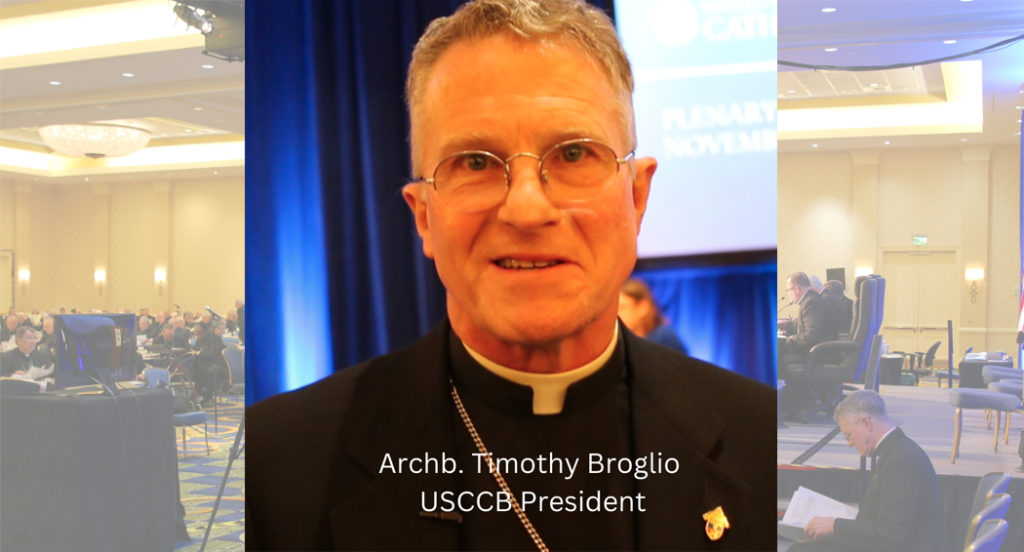
The Bishops of the United States renewed authorities: The new president is Archbishop Timothy Broglio
Enrique Soros
17 November, 2022
4 min
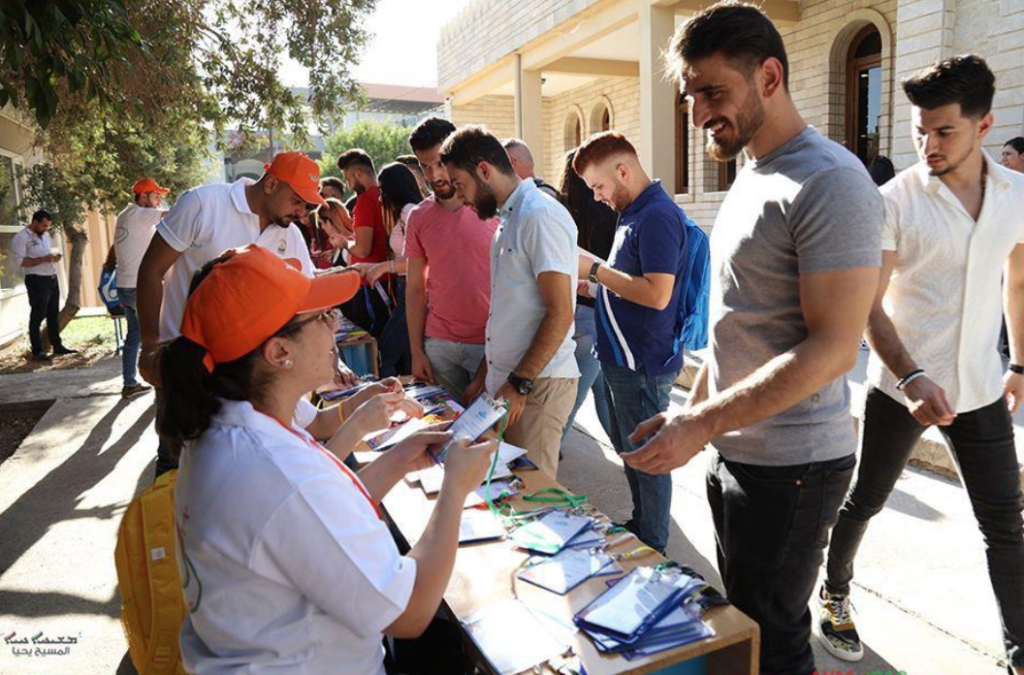
Iraq: Gathering the youth in hope
Ayuda a la Iglesia Necesitada
06 September, 2022
2 min
 (EN)
(EN)
 (ES)
(ES)
 (IT)
(IT)

